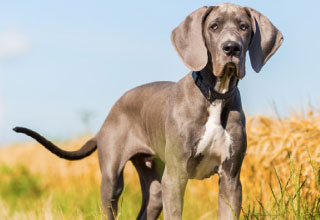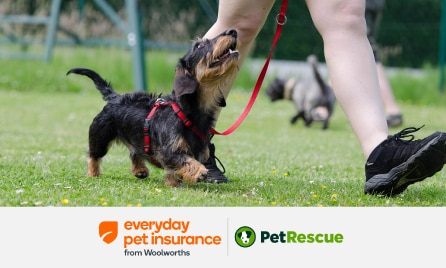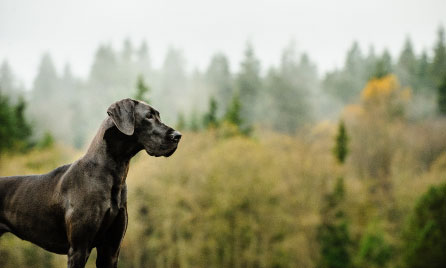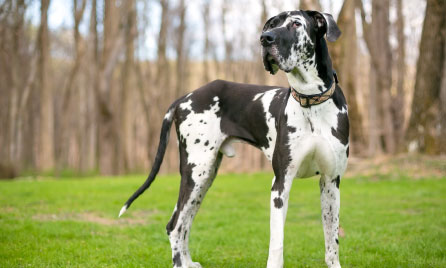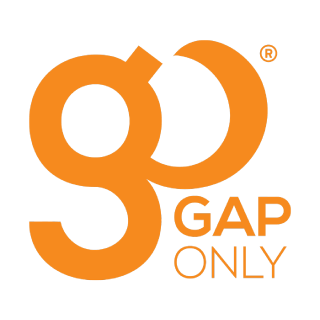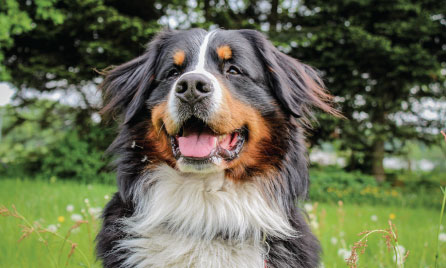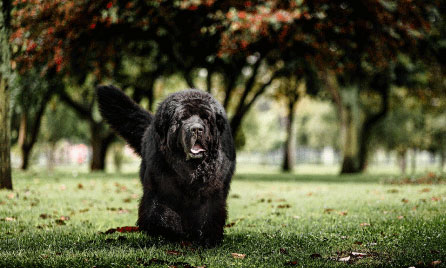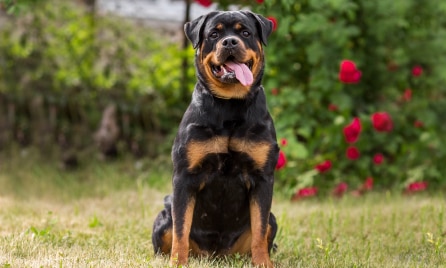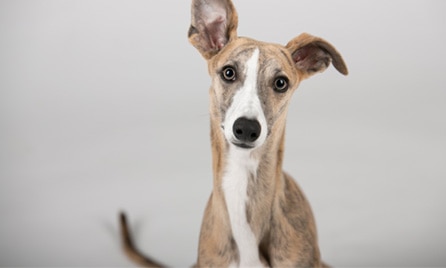- text
-
# Depending on your level of cover. Policy T&Cs, limits, exclusions, waiting periods and annual excess may apply.
Information about Great Danes.
- Information about Great Danes.
- Great Dane breed information.
- Should I get a Great Dane?
- Great Dane personality.
- Taking care of a Great Dane.
- Common Great Dane health conditions.
- The cost of insuring a Great Dane.
- Need Pet Insurance for your Great Dane?
- Why pick Everyday Pet Insurance?
- Related articles.
- Important Information.
Known as gentle giants, this large dog breed has the big heart to match its big frame. Despite their intimidating size, Great Danes are generally sweet and affectionate and have been known to try and clamber onto their humans’ laps. Patient and loyal, Great Danes can make perfect family pets for those who have the space in their hearts and homes.
Want to learn more about this breed? Read our guide below to see if Great Danes are the pet for you.
